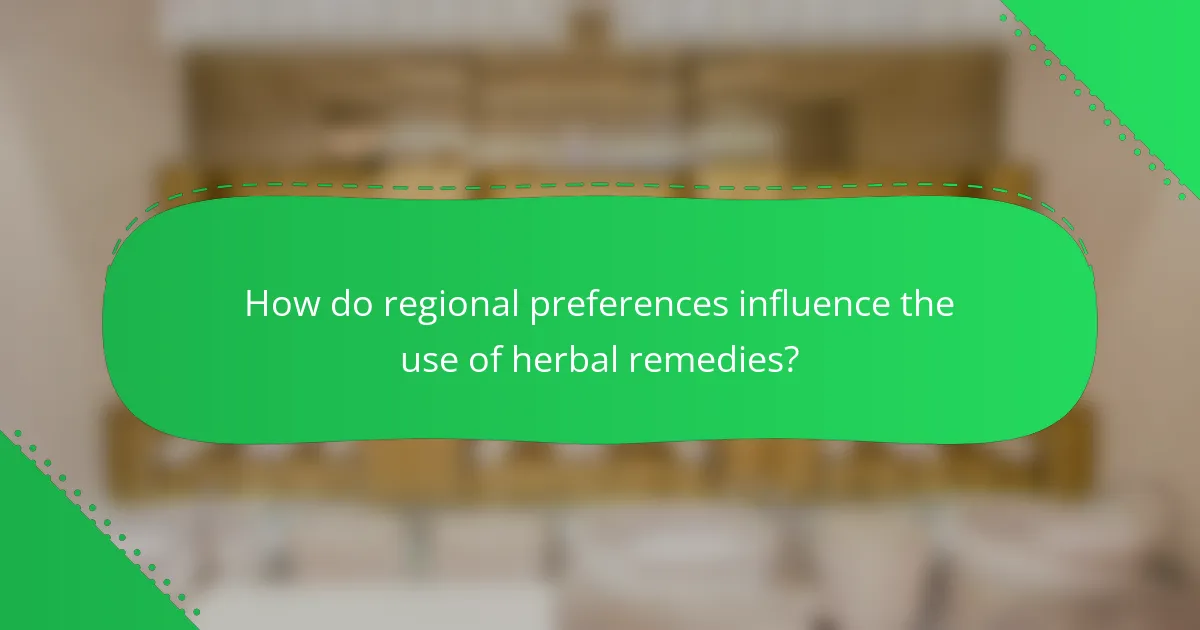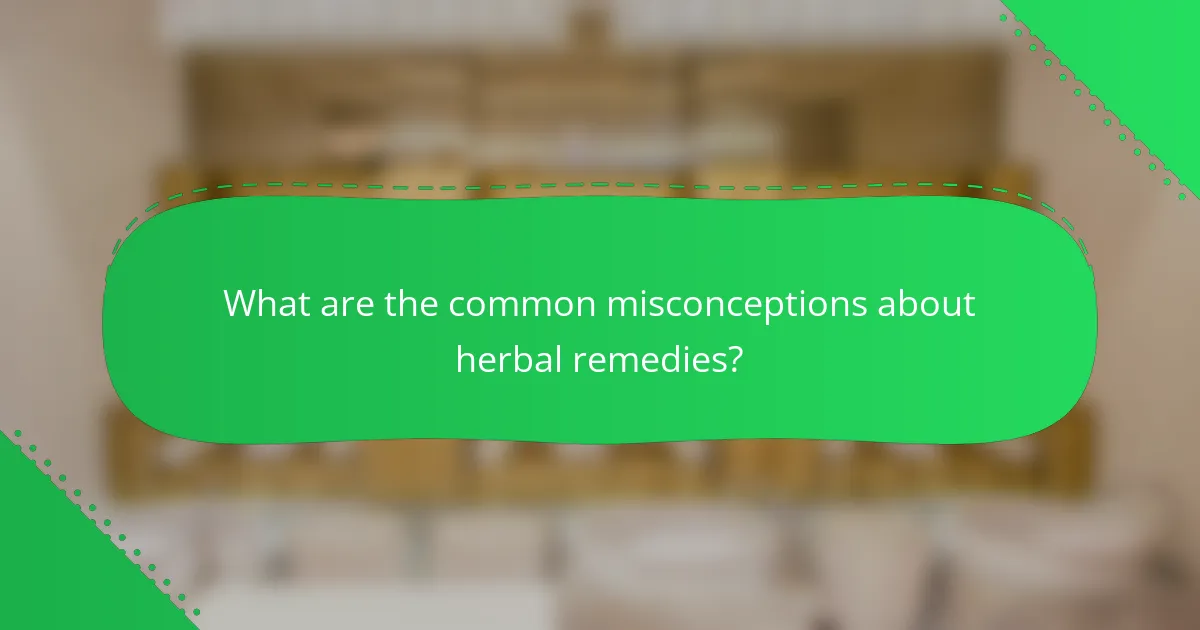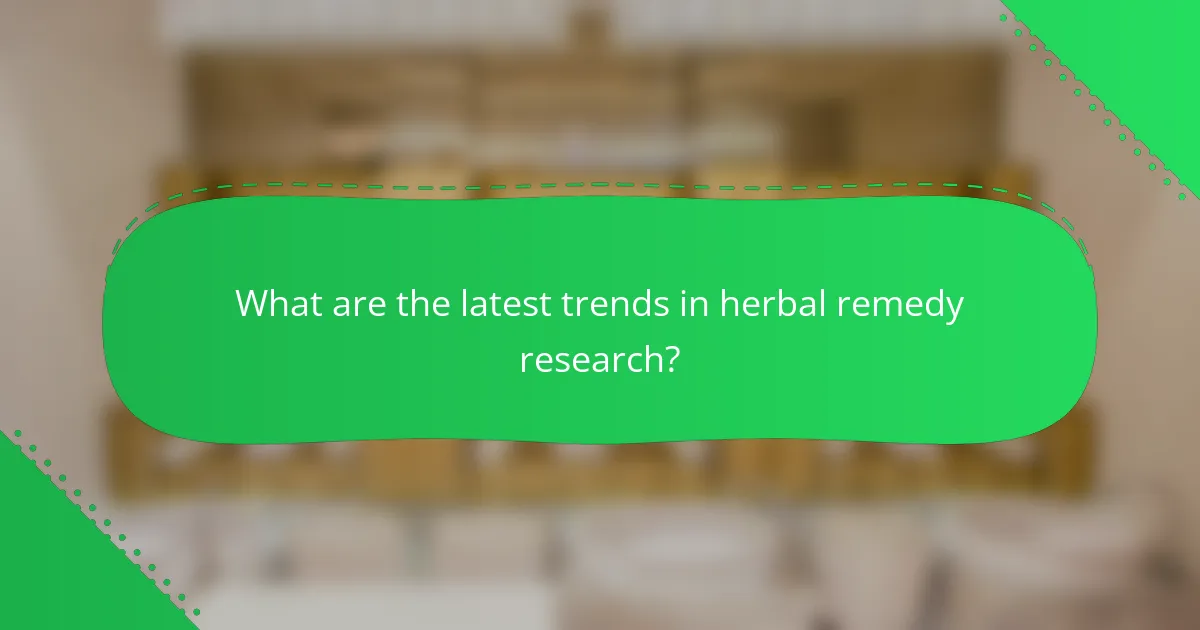Managing stress, supporting immune health, and boosting energy are essential for overall well-being. Herbal remedies like ashwagandha, echinacea, and ginseng offer natural solutions for these challenges. They provide relaxation, enhance immune function, and increase stamina. Understanding the benefits and applications of these herbs can help individuals incorporate them effectively into their daily routines.

What are the most effective herbal remedies for stress management?
Herbal remedies such as ashwagandha, chamomile, and lavender are effective for stress management. Ashwagandha reduces cortisol levels, chamomile promotes relaxation, and lavender enhances mood. These remedies support overall well-being and can be easily incorporated into daily routines.
How do herbal remedies alleviate stress symptoms?
Herbal remedies effectively alleviate stress symptoms by promoting relaxation and balancing mood. Ingredients like ashwagandha and chamomile reduce cortisol levels, enhancing emotional well-being. Adaptogens, found in herbs, help the body adapt to stressors, improving resilience. Regular use of these remedies can lead to long-term stress management benefits.
Which herbs are commonly used for stress relief?
Herbs commonly used for stress relief include chamomile, lavender, valerian root, ashwagandha, and passionflower. These herbs are known for their calming properties and ability to reduce anxiety levels. Chamomile is often consumed as tea, while lavender can be used in essential oils or aromatherapy. Valerian root is recognized for its sedative effects, making it suitable for sleep support. Ashwagandha is an adaptogen that helps the body manage stress, and passionflower is noted for its ability to promote relaxation. Each herb provides unique benefits that contribute to stress management.
What are the recommended dosages for stress-relieving herbs?
The recommended dosages for stress-relieving herbs vary by herb. Common dosages include 300-600 mg of ashwagandha, 200-400 mg of rhodiola, and 1-3 grams of chamomile. These amounts can help manage stress effectively. Always consult a healthcare provider before starting any herbal regimen.

How can herbal remedies support immune health?
Herbal remedies can effectively support immune health by providing natural compounds that enhance immune function. Herbs like echinacea and elderberry are known for their immune-boosting properties. Echinacea may reduce the duration of colds by 10-20%, while elderberry has antiviral effects against influenza. Additionally, adaptogens such as ashwagandha and rhodiola help manage stress, which is crucial for maintaining a robust immune system. A balanced immune response can be achieved through regular intake of these herbal remedies.
What specific herbs enhance immune function?
Echinacea, elderberry, astragalus, and garlic are specific herbs known to enhance immune function. Echinacea boosts white blood cell production, while elderberry is rich in antioxidants that combat viruses. Astragalus has unique properties that strengthen immune response, and garlic offers rare antimicrobial benefits. Incorporating these herbs can significantly support overall immune health.
Which herbal preparations are most effective for immune support?
Echinacea, elderberry, and astragalus are among the most effective herbal preparations for immune support. Echinacea is known for its ability to enhance immune function and reduce the duration of colds. Elderberry contains antioxidants and can help prevent viral infections. Astragalus is recognized for its unique immune-boosting properties and ability to improve overall health. Other notable herbs include garlic and ginger, which also support immune health through their anti-inflammatory effects.
What are the safety considerations when using herbs for immune health?
When using herbs for immune health, safety considerations include potential interactions, dosage accuracy, and individual sensitivities. Herbs can enhance immune function but may also cause adverse effects or interact with medications. Always consult a healthcare professional before starting any herbal regimen. Monitoring for allergic reactions is crucial, as some individuals may have unique sensitivities. Additionally, sourcing high-quality herbs ensures safety and efficacy, as contaminants can pose health risks.

What herbal solutions are available for boosting energy levels?
Herbal solutions for boosting energy levels include ginseng, ashwagandha, and rhodiola. Ginseng enhances stamina and reduces fatigue, while ashwagandha supports adrenal function and stress management. Rhodiola is known for improving mental performance and reducing exhaustion. These herbs have unique attributes that can help individuals seeking natural ways to increase their energy.
How do different herbs compare in their energy-boosting effects?
Different herbs vary significantly in their energy-boosting effects. Ginseng is known for its ability to enhance stamina and reduce fatigue, while ashwagandha helps combat stress, indirectly improving energy levels. Rhodiola rosea is effective in increasing endurance and mental performance. Green tea provides a moderate boost due to its caffeine and L-theanine content, promoting alertness without jitters. Maca root supports energy through hormone balance and nutrient density. Each herb offers unique attributes that contribute to overall energy enhancement.
What are the best methods for consuming energy-boosting herbs?
The best methods for consuming energy-boosting herbs include teas, tinctures, capsules, and smoothies. Herbal teas, such as ginseng or matcha, provide a quick energy boost. Tinctures offer concentrated doses, while capsules are convenient for on-the-go use. Smoothies can incorporate various herbs, enhancing flavor and energy.
What are the potential side effects of energy-boosting herbal remedies?
Energy-boosting herbal remedies can cause side effects like insomnia, digestive issues, and increased heart rate. These reactions vary based on individual sensitivities and the specific herbal ingredients used. For example, ginseng may lead to anxiety, while guarana can cause jitteriness. Understanding these potential side effects helps users make informed choices about herbal supplements.

How do regional preferences influence the use of herbal remedies?
Regional preferences significantly shape the use of herbal remedies, as cultural beliefs and local availability influence choices. For instance, in Asia, adaptogens like ashwagandha are popular for stress management, while in Europe, echinacea is favored for immune support. Climate and geography also dictate which herbs thrive, affecting local practices. These regional variations highlight the unique attributes of herbal remedies tailored to specific cultural needs and environmental conditions.
What are the cultural attitudes towards herbal remedies in different regions?
Cultural attitudes towards herbal remedies vary significantly across regions. In Asia, herbal remedies are deeply rooted in traditional practices like Traditional Chinese Medicine and Ayurveda, emphasizing holistic health. In Europe, there is a growing interest in herbal supplements, often viewed as complementary to conventional medicine. North America exhibits a mix of skepticism and acceptance, with many consumers seeking natural alternatives for stress management and energy boosting. In Africa, indigenous knowledge of herbal remedies is prevalent, often passed down through generations. Each region’s perspective shapes the use and acceptance of herbal remedies for stress management, immune support, and energy boosting.
Which herbal remedies are uniquely favored in specific cultures?
Various cultures favor specific herbal remedies for stress management, immune support, and energy boosting. For example, Ashwagandha is widely used in Ayurvedic medicine for stress relief. Echinacea is popular in North America for immune support. Ginseng is favored in East Asian cultures for energy enhancement. Chamomile, known for its calming effects, is commonly used in European herbal traditions. Each remedy reflects cultural preferences and traditional practices.

What are the common misconceptions about herbal remedies?
Common misconceptions about herbal remedies include the belief that they are always safe and effective. Many people assume that because herbal products are natural, they pose no risks. However, some herbs can interact with medications or cause side effects. Another misconception is that herbal remedies can replace conventional medicine entirely. While they can support stress management, immune function, and energy levels, they should complement, not substitute, professional medical advice. Additionally, people often think all herbal remedies have scientifically proven benefits, but many lack rigorous clinical studies to validate their effectiveness.
How can misinformation affect the use of herbal treatments?
Misinformation can significantly hinder the effective use of herbal treatments. It may lead to incorrect dosage, inappropriate combinations, or neglecting potential side effects. For instance, misleading claims about a specific herb’s efficacy can result in users relying on it exclusively, ignoring proven therapies. This can diminish overall health outcomes and increase risks associated with unverified remedies. Additionally, misinformation can create distrust in legitimate herbal practices, discouraging individuals from exploring beneficial options for stress management, immune support, and energy boosting.
What are the most prevalent myths regarding herbal remedies for stress and energy?
Many myths surround herbal remedies for stress and energy, often leading to misconceptions. Common myths include the belief that all herbal remedies are completely safe, that they work instantly, and that they can replace prescribed medications. Another myth is that herbal supplements are always effective for everyone, disregarding individual differences. Additionally, some people think that natural means no side effects, which is not true for all herbs. Understanding these myths helps in making informed choices about herbal remedies for stress management and energy boosting.

What are the latest trends in herbal remedy research?
Current trends in herbal remedy research focus on natural solutions for stress management, immune support, and energy boosting. Researchers are investigating adaptogens like ashwagandha for stress reduction, elderberry for immune enhancement, and ginseng for energy increases. Studies highlight the effectiveness of these herbs in clinical trials, showcasing their potential benefits. Additionally, there is a growing interest in combining multiple herbs to enhance their effects, leading to innovative formulations. The emphasis on sustainability and organic sourcing is also influencing research and product development in this field.
Which studies are shaping the future of herbal medicine?
Recent studies are highlighting the efficacy of herbal remedies for stress management, immune support, and energy boosting. Research indicates that adaptogens like ashwagandha reduce cortisol levels, enhancing stress resilience. Elderberry has shown promise in boosting immune function, particularly against viral infections. Additionally, ginseng is recognized for its ability to improve energy levels and combat fatigue. These findings shape future applications of herbal medicine, emphasizing their potential in holistic health strategies.
How is technology influencing the development of herbal remedies?
Technology significantly enhances the development of herbal remedies by streamlining research and improving formulation processes. Advanced analytical techniques allow for precise identification of active compounds in herbs, ensuring effective stress management, immune support, and energy boosting. Digital platforms facilitate knowledge sharing among researchers and practitioners, promoting innovative combinations of traditional herbs. Additionally, technology enables personalized remedies through data analysis, tailoring herbal solutions to individual health needs. This integration of technology fosters a more evidence-based approach to herbal medicine, elevating its credibility and effectiveness in modern wellness practices.
What role do herbal remedies play in holistic health approaches?
Herbal remedies play a significant role in holistic health approaches by promoting stress management, immune support, and energy boosting. These natural solutions often incorporate root attributes like adaptogenic properties, which help the body adapt to stress and maintain balance. For instance, ashwagandha is renowned for reducing cortisol levels, enhancing resilience to stress.
Unique attributes of specific herbs further enhance their effectiveness; for example, elderberry is recognized for its immune-boosting capabilities, providing antioxidants that support overall health. Additionally, rare attributes such as the energizing effects of ginseng can improve physical performance and reduce fatigue.
Incorporating herbal remedies into daily routines can lead to improved well-being, making them valuable components of holistic health strategies.
What best practices should users follow when incorporating herbal remedies?
Users should follow best practices such as consulting healthcare professionals, researching herbal properties, and starting with small doses. Understanding potential interactions with medications is crucial. For stress management, consider adaptogens like ashwagandha. For immune support, focus on echinacea or elderberry. For energy boosting, ginseng is a popular choice. Always monitor individual responses to ensure safety and effectiveness.
